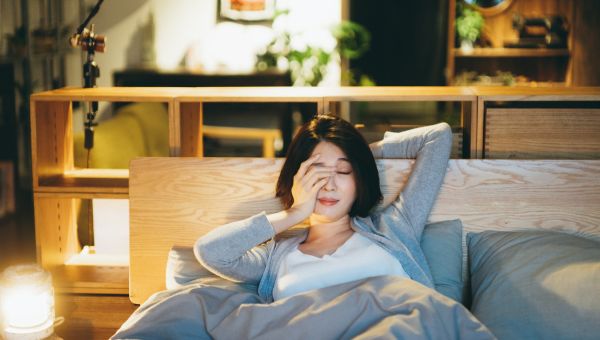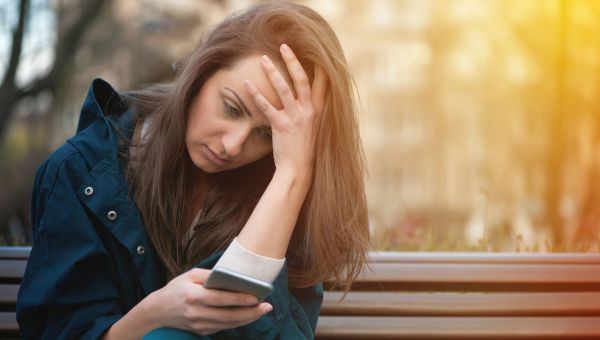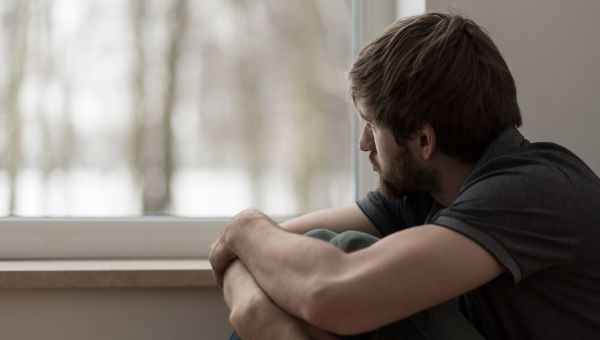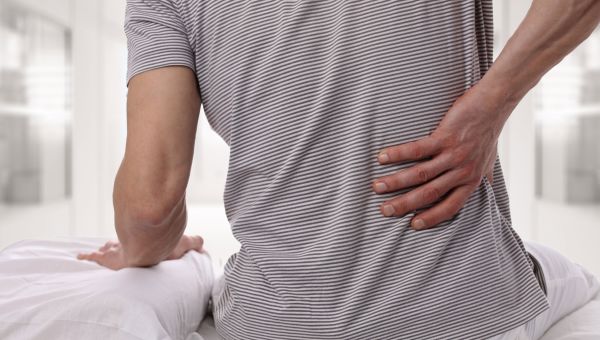5 Surprising Triggers of Insomnia
Stress and your diet are two possible causes of sleepless nights.

If you can’t seem to fall asleep at night, and not even counting sheep helps, you might have insomnia. Insomnia is a disorder that makes falling asleep, staying asleep, or both, a frustrating challenge. The condition can be acute—meaning it lasts only a few days or weeks—or chronic, meaning it lasts for several months, or longer. Most cases of chronic insomnia are the result of an underlying health condition, medication side effect or other sleep disorder. Acute insomnia tends to be brought on by specific events, such as significant troubles at home or work.
If you spend hours each night tossing and turning, sleep for only short periods or wake up exhausted, talk to your doctor. Insomnia can be treated with medication, but changing some of your everyday activities, like the foods you eat and the time you lay your head to rest, can be effective, too.
Find out five common, but lesser-known triggers of insomnia, and get to the bottom of your sleepless nights.

Stress and Anxiety
There are several different types of anxiety, but generalized anxiety disorder (GAD) causes long-lasting worry. Those with the condition often dwell on negative and unrealistic scenarios and may blow situations out of proportion. So, what’s anxiety got to do with sleep? A whole lot more than you think.
Overwhelming feelings of worry can keep you up at night, triggering insomnia. The relationship between anxiety and insomnia is cyclical. Sleep deprivation can in turn spark anxiety.
Results from a 2007 analysis of two surveys which included more than 25,000 Norwegian adults suggested that participants with chronic insomnia were at an increased risk of developing anxiety, when compared with those who didn’t have the sleep condition.
The connection between sleep and stress is also a cyclical one. Stress can trigger insomnia, and lack of sleep can stress you out. Stress-related insomnia, brought about by stress at work, divorce, grief or another big life event, makes falling asleep and staying asleep a real feat.
If you experience difficulty falling asleep after a stressful day or a taxing week, you’re not alone. Results from one survey suggest a whopping 43 percent of participants admit stress has caused them to lay awake at night at some point during the month preceding the survey.
You don’t have to live with overwhelming stress, anxiety or insomnia, and treating one may lessen the burden of the others. Severe anxiety may be treated with therapy and medication, but certain lifestyle changes can help people calm down. A healthy diet, adequate physical activity, yoga, meditation and deep breathing can help ease stress and anxiety and boost sleep quality. Kick starting a healthier lifestyle doesn’t have to be a chore—start with smart habits that take one minute or less.

Depression
We all feel down at times, but depression is something more serious. Depression is a mood disorder that causes lasting feelings of sadness and worthlessness, trouble concentrating and a loss of interest in activities you would normally enjoy. Depression can also disrupt your usual sleep pattern: about three-fourths of people diagnosed with depression also experience insomnia.
That’s not the only connection between the two conditions. Research suggests insomnia can up your risk for depression. One study in particular found that people who had depression were more likely to have trouble falling asleep and staying asleep.
If you have depression, these strategies can help. If you’ve been prescribed a course of treatment, like medication or therapy, for depression, stick to your treatment plan, avoid alcohol—which can worsen symptoms of depression—and keep a journal as a way of expressing feelings of anger, fear or pain. You might also consider joining an online community that offers support, encouragement and strategies for those coping with depression.

Diet
What you eat and drink throughout the day can have an effect on the quality of your slumber. Caffeine is a stimulant, which can disrupt your sleep if consumed too close to bedtime—and remember that caffeine isn’t just found in coffee and some teas.
For quality shuteye, avoid chocolate and coffee- or chocolate-flavored foods like ice cream and pudding, several hours before bed. One study suggests caffeine consumed even six hours before bedtime can disrupt sleep. Results from one small study of 26 adults suggest that a diet low in dietary fiber and high in sugar and saturated fats can worsen sleep quality. Those who ate a controlled diet low in saturated fat and high in protein fell asleep an average of 12 minutes faster than study participants who ate meals of their own choosing.
There’s more. Lack of adequate sleep ups your cravings for unhealthy foods. Research suggests those who sleep for a minimum of seven hours a night are less likely to crave sweet, salty and fatty foods. For better slumber, avoid spicy foods, which can cause heart burn, caffeine, alcohol and heavy meals too close to bedtime.

Chronic Pain
When your body is plagued with aches, sleep can be elusive. In fact, pain is one of the most common causes of insomnia, which affects up to two-thirds of those who live with chronic pain.
Besides leaving you exhausted, a lack of sleep can further exacerbate chronic pain and can make pain medications less effective. There are proven ways to lessen the burden of both insomnia and chronic pain. Cognitive behavioral therapy for insomnia (CBT-1) can help control the factors that keep you awake at night, like negative thoughts and feeling about your aches and pains. Therapy may include relaxation techniques to practice before bedtime, specific sleep habits and better sleep hygiene. These techniques, in addition to pain treatment prescribed by your doctor, could help quell the discomfort of both conditions.
Your doctor is best apt to help you with treatment for insomnia and chronic pain, so make an appointment to discuss your options.

Medications
If you’re struggling to sleep, one of your medications may be to blame. Drugs prescribed to treat hypertension, high cholesterol, depression and heart failure can leave you sleepless.
ACE inhibitors, prescribed to treat high blood pressure and heart failure, can cause side effects like a tickling and persistent cough, leg cramps and even diarrhea. These conditions can certainly make it hard to get the rest you need.
Beta-blockers are prescribed to help treat hypertension and arrhythmia, and have long been thought to disturb sleep. Not only does this medication make falling asleep more challenging, it can also cause disruptions throughout the night. Research suggests that beta-blockers disrupt the flow of melatonin, the hormone that helps regulate sleep. Researchers believe certain medications inhibit the body’s ability to produce this hormone at night, causing you to stir.
If you suspect your medication could be causing insomnia, speak with your doctor, who may be able to provide you with different course of treatment or methods to get more shuteye.
More On


video

article


video


video


video
